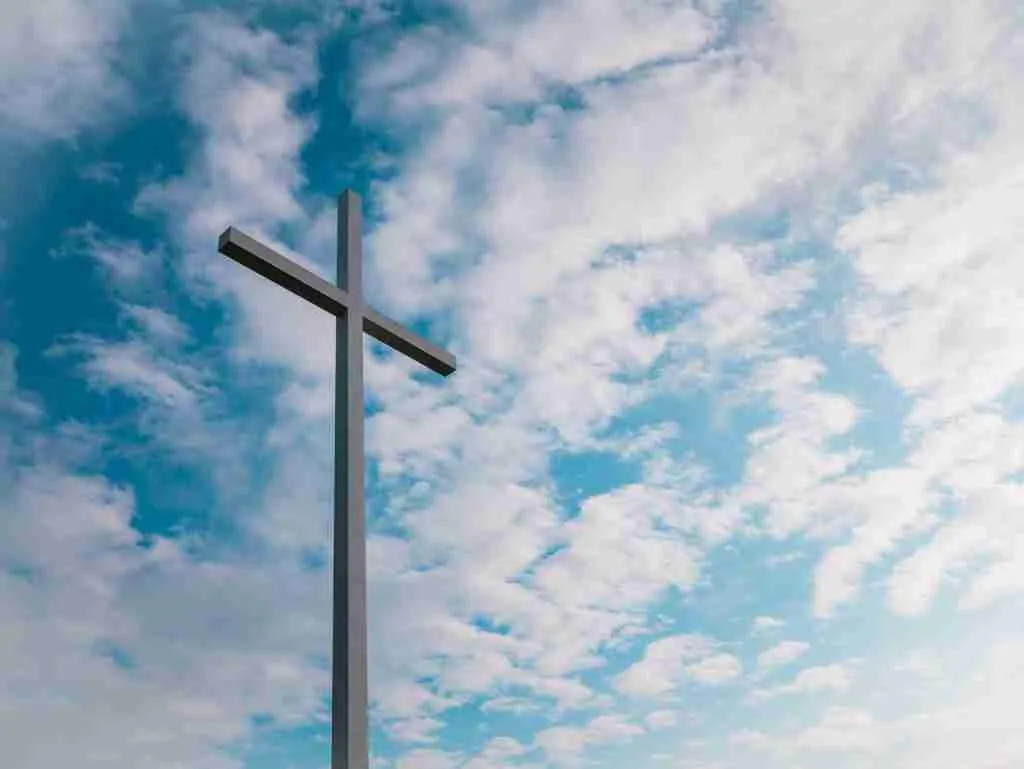24 Fun Facts About Friday That Will Fascinate You
-
Some cultures believe babies born on Friday are especially artistic.
-
In Finnish, Friday is called “perjantai,” named after the goddess Freya.
-
Friday has the fewest scheduled surgeries in many hospitals.
-
In Brazil, some schools play national songs only on Fridays.
-
Retail workers often call Friday “prep day” before weekend rush.
-
Japan once introduced a “Premium Friday” to encourage early leave.
-
The stock market sees higher volatility on Fridays before long weekends.
-
British radio often hosts special “Friday-only” listener games.
-
Some people set alarms later on Fridays out of habit.
-
Traffic apps record the longest evening commutes on Fridays.
-
Pet grooming appointments peak on Friday afternoons.
-
In Germany, Friday is popular for family bread baking.
-
Some yoga studios offer “unwind Friday” classes.
-
Friday is a favorite day for newsletter subscriptions.
-
New emoji updates are often rolled out on Fridays.
Table of Contents
1. Jesus was Crucified on a Friday

READ ALSO: 25 Fun Facts About Monday You Never Knew
On the Christian calendar, this event is commemorated as Good Friday. It was a tragic day for Christians as it marked the crucifixion and death of Jesus Christ, their savior.
This day, deeply rooted in historical events, also holds profound significance. Through Christ’s sacrifice on the cross, religious believers find redemption and the promise of eternal life.
2. The name Friday comes from a Norse goddess of love.
Friday gets its name from Frigg, the Norse goddess associated with love and fertility. Her name was used in Old English as “Frīgedæg,” meaning “Frigg’s day.”
Frigg was believed to be wise and powerful, overseeing marriage and motherhood. This gives Friday an ancient connection to warmth, relationships, and femininity that still lingers today.
3. In Islamic countries, Friday is a day of prayer.
Friday holds religious importance in many Muslim-majority nations. It’s considered a holy day when people gather for special congregational prayers.
This weekly tradition is known as Jumu’ah and replaces the typical Sunday worship in other cultures. It’s a time for reflection, community, and spiritual renewal.
4. Casual Friday became popular in the 1990s.
The idea of dressing down on the last workday of the week began gaining traction in U.S. offices during the ’90s. It was seen as a way to relax workplace norms.
This movement started with Hawaiian “Aloha Fridays” and spread to other industries. Eventually, it became part of the relaxed work culture many enjoy today.
5. Some countries consider Friday part of the weekend.
In many Middle Eastern countries, Friday is the start of the weekend. Workweeks often run from Sunday to Thursday instead.
This schedule accommodates religious observances and family time. It also changes how weekends and holidays are planned in business and education.
6. Many blockbuster movies are released on Fridays.
Friday has become the standard release day for big-budget films. Studios often target this day to catch weekend crowds and maximize opening revenue.
This habit started in the 1980s and continues globally. Audiences now associate Fridays with premieres, popcorn, and packed theaters.
7. In Thailand, each day has a color and Friday’s is blue.
Thai culture assigns a lucky color to each day of the week. Blue is the color connected to Friday and is often worn or displayed for good fortune.
This tradition comes from ancient astrological beliefs. Thai citizens still wear blue on Fridays as a way to honor the day and attract positivity.
8. Some cultures believe Friday is unlucky for starting new projects.
In old European traditions, beginning important tasks on a Friday was thought to bring bad luck. Sailors, for instance, avoided setting sail on this day.
Though the idea has faded, traces of it remain. Some people still avoid weddings, travel, or major purchases on Fridays out of habit.
9. Black Friday Follows Thanksgiving in the U.S.

READ ALSO: 27 Fun Facts About Sunday: Weekend’s Joyous Moments
This day is characterized by heavy shopping traffic and significant store sales. For many, fun facts about Black Friday include that it marks the beginning of holiday shopping.
10. Friday is the most popular day for weddings in some cultures.
Many couples choose Friday for weddings to allow guests to enjoy a long weekend. Venues also offer lower rates compared to Saturday ceremonies.
Some Indian and Jewish weddings are traditionally held on Fridays. It’s both practical and symbolic—marking a joyful start to a new chapter.
11. Restaurants and bars see higher traffic on Friday evenings.
Friday nights are peak hours for the hospitality industry. People celebrate the end of the week by dining out or grabbing drinks with friends.
According to industry stats, sales often jump by 20–30% compared to midweek. That’s why special deals and happy hours are common on Fridays.
12. The phrase “Thank God It’s Friday” was coined in the 1960s.
The popular phrase “TGIF” became part of casual English in the mid-20th century. It captured the excitement of leaving the workweek behind.
The slogan became so iconic that it inspired restaurants, songs, and even TV shows. It’s now one of the most recognized phrases in pop culture.
13. Venus, the planet of love, is linked to Friday.
In Roman mythology, Friday was associated with Venus—the goddess of beauty and affection. The French word for Friday, “vendredi,” reflects this connection.
Venus ruled over relationships, which may explain Friday’s romantic vibe. This planetary link adds a cosmic layer to the day’s symbolism.
14. Workers are more productive on Fridays than people think.
Despite the stereotype of slacking off, some studies suggest that employees wrap up tasks more efficiently on Fridays. There’s a sense of urgency to finish the week strong.
Many people also engage in planning for the upcoming week. This combo of focus and motivation can make Fridays surprisingly effective.
15. Meatless Fridays are observed in some religious traditions.
Catholics and Orthodox Christians often avoid eating meat on Fridays, especially during Lent. This practice is meant to promote simplicity and sacrifice.
Fish is a common substitute, which gave rise to many Friday fish specials in restaurants. These customs have shaped not just diets, but entire food markets.
16. Friday is the least common day for medical appointments.
Many people avoid scheduling medical or dental visits on Fridays. They worry about weekend closures and delayed follow-ups if issues arise.
As a result, clinics often have lighter schedules on Fridays. For some, that actually makes it a great day to book if availability is tight.
17. Some schools offer shorter hours on Fridays.
In many parts of the U.S. and other countries, schools end earlier on Fridays. This gives students and staff a head start on the weekend.
It’s also believed to reduce burnout and improve attendance. This small change often brings a big morale boost by the end of a long week.
18. Emails sent on Friday get fewer responses.
Friday isn’t the best day to send important emails. Open and reply rates often dip as people shift into weekend mode.
Marketers and professionals prefer midweek emails for better engagement. So if it can wait, Monday might be your better bet.
19. Some people fast on Fridays for health or spiritual reasons.
Beyond religious fasting, many choose Fridays as a regular fasting day. It aligns with weekly routines and creates space for reflection or detoxing.
Intermittent fasting on Fridays is also common among health-conscious individuals. It offers both physical and mental benefits for those who follow the habit.
20. Friday night is prime time for streaming and gaming.
Entertainment platforms see a spike in activity on Friday evenings. People unwind by watching new releases or gaming with friends online.
Streaming services often drop fresh content on Fridays to match viewer habits.
21. Some radio stations play throwback hits on Fridays.
Many stations set aside Fridays to play classic hits. It’s a way to build excitement and nostalgia as people wind down from the week.
This trend has extended to streaming playlists and DJ sets. Audiences love ending the week on a familiar note.
22. Ancient Romans considered Friday unlucky for weddings.
While modern cultures embrace Friday weddings, the Romans did not. They viewed it as a day sacred to spirits and avoided celebrations on it.
These beliefs faded over time but influenced later superstitions in Europe. It’s a reminder of how cultural meaning shifts with time.
23. Fridays Seen as Auspicious for Starting Businesses

READ ALSO: 25 Fun Facts About Tuesday That Will Amaze You
Many people believe that Friday is associated with good luck, which can help a business get off to a strong start. If you’re thinking about starting a business, you may want to consider doing so on a Friday.
24. Productivity apps often show a drop in user activity on Fridays.
Apps that track productivity trends see a dip every Friday afternoon. Users naturally slow down as the week closes and attention drifts elsewhere.
That’s why some apps now send reminders or wrap-up summaries on Fridays.
FAQS
Friday is named after the Norse goddess Frigg and is often linked to love and beauty. It’s also the most common day for movie premieres and casual office wear. Many people consider it the happiest day of the week.
Friday marks the end of the traditional workweek, which brings a sense of relief and anticipation. It signals the start of the weekend for most people. Social events, dining out, and relaxation are often planned around this day.
Yes, Friday holds cultural significance in many places. For Muslims, it’s a holy day marked by special prayers and sermons. In the West, it’s usually connected to entertainment, shopping, and end-of-week celebrations.
In some old European traditions, starting important tasks on a Friday was considered bad luck. The superstition around Friday the 13th combines fear of the number 13 with this belief. However, not all cultures view Friday negatively.





